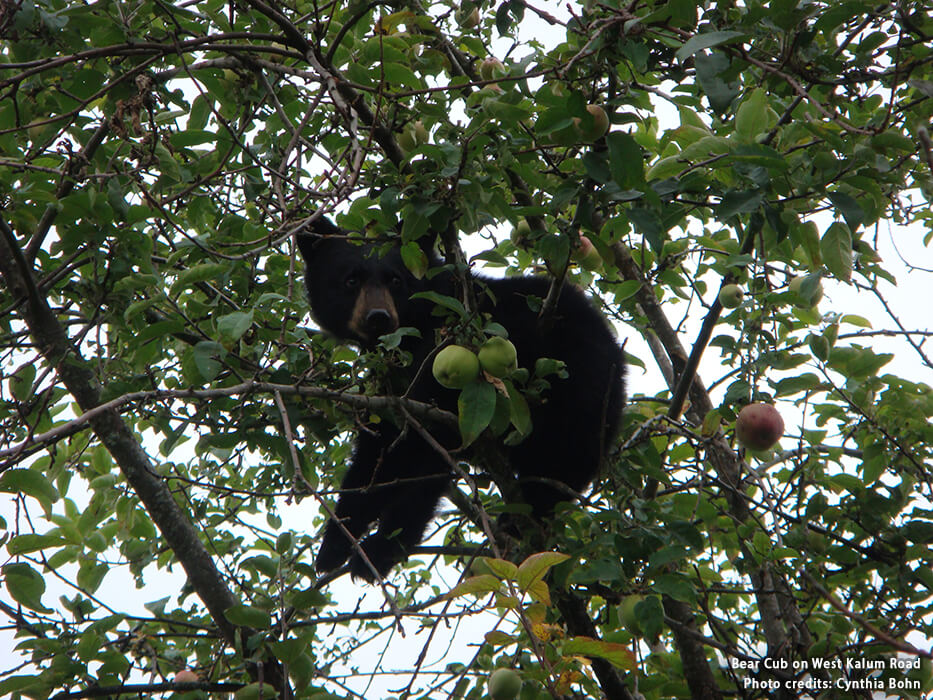
Bears live to eat
Once a bear discovers human food sources or garbage it may become “food conditioned”. Bears in pursuit of human food sources may cause damage to personal property or, in rare cases, cause human injury or death. The following tips will help minimize the likelihood of conflict with bears on your property:
Garbage/Recyclables/Compost
Never store garbage or recyclables outside, unless it is in an approved bear-proof container or bear-proof enclosure.
Do not put garbage, recyclables or compost curb-side until morning of pick-up.
It may only take one time to condition a bear to human garbage.
Fruit Trees/Berry Bushes
Harvest fruits as soon as they ripen.
Remove fallen fruit from the ground daily.
Electric fence large orchards.
Plant non-fruit bearing trees/shrubs when landscaping.
Bird Feeders
Do not use bird feeders in bear country.
As an alternative to hummingbird feeders, use bird baths or plant red or pink native flowers that are known to appeal to hummingbirds.
Barbecues
Burn barbecues clean immediately after use.
Store units indoors, if possible leave the propane tank outside.
Always remove the grease can and store it indoors when not in use.
Do not leave any food unattended outside, the smell from barbecuing travels a long distance.
Pet Food
Feed your pets indoors and store their food inside.
Do not leave dog bones lying around the yard.
In B.C. it is an offence to intentionally feed or leave attractants available to dangerous wildlife and can yield fines up to $50,000.
Always report bear encounters where public safety is at risk to the Conservation Officer Service at 1-877-952-7277.
More info: http://www.bearsmartbc.com/bear-safety1/home-owner-tips
More info: http://www.bearsmart.com/about-bears/dispelling-myths


